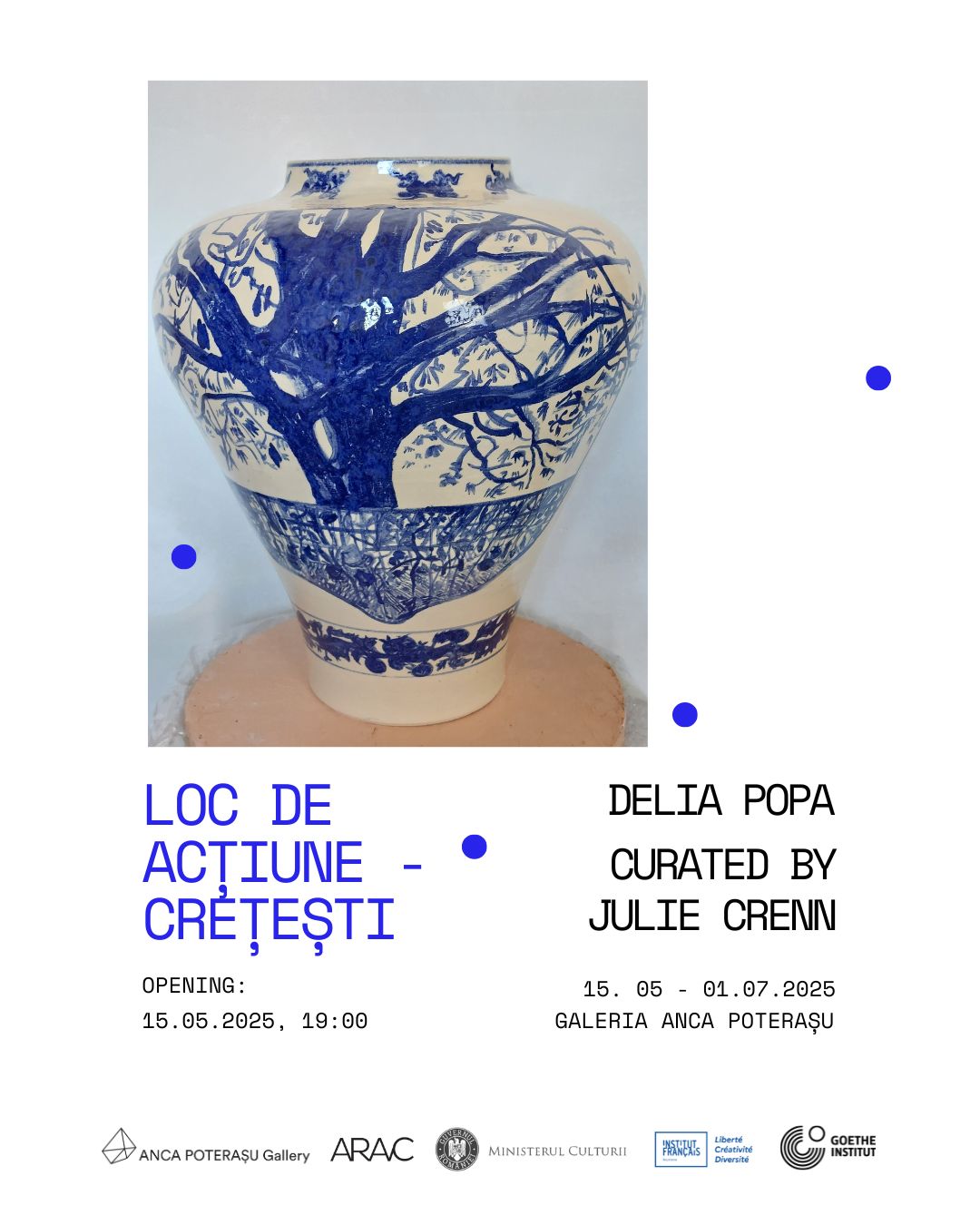
Delia Popa
Delia Popa (b. 1980, Bucharest, Romania) holds an MFA in Painting and Drawing from School of the Art Institute of Chicago, USA (2007), a Postgraduate Diploma in Fine Arts from Goldsmiths College, University of London (2005), as well as an MFA in Visual Arts and a Bachelor Diploma in Painting from the National University of Arts Bucharest (2004). She works in media such as painting, video, installation, performance and participatory projects. Delia POPA’s works have been presented in prestigious national and international group exhibitions, screenings and performance events, including at the National Museum of Contemporary Art/MNAC, Bucharest (2023/2020/2014/2005), Pragovka Gallery, Prague (2024), at Galeria Anca Poterașu, Bucharest (2024), at Toplocentrala, Sofia, Bulgaria (2022), at the Cologne Biennale, Germany (2022),at the Occupy Art Festival New York City, USA (2022), at Kunsthalle Bega, Timișoara, Romania (2021), at WASP Studios, Bucharest (2018). In 2020, some of Delia POPA’s works were included, through public acquisition, in the collection of the National Museum of Contemporary Art of Romania (MNAC).
Curator: Julie Crenn
15.05-1.07.2025
ARAC, Anca Poterașu Gallery
26 Popa Soare Street, Bucharest
ARAC is pleased to present Delia Popa’s first solo exhibition with the gallery, titled Loc de acțiune – Crețești, curated by Julie Crenn. The show creates a space where local heritage, global influences, and personal history intersect, challenging the marginalization of the rural world in contemporary culture.
Since 2020, Delia Popa has been focusing on her place, the village of Crețești located in the commune of Vidra, in southern Ilfov County. In her grandparents’ house, she establishes her studio.In 2022, starting from this precise location, she works in harmony with the house: the furniture, the ceramic tiles adorning the wood burning stove, the architecture, the wood, the everyday objects. She also works with the garden ecosystem: the walnut tree, the greenhouse, the crops, the human and more-than-human inhabitants. Around the house, she spends time observing and documenting climatic, structural and topographical changes. Delia Popa observes the ways in which human constructions take precedence over living things. In this way, she photographs
moments of change and transformation in the village: trees lying down, trees deliberately cut down, the construction of a bridge, housing, shops. Crețești is in a state of flux. And that’s exactly what the artist is concerned with: a mutation that has both a cheerful dimension and critical aspects.
The paintings and ceramic works participate in a reconnection of Crețești’s inhabitants with their shared history and present. Why? Delia Popa writes: “Why then is this rural world important? Because 46% of Romanians live there, we all come from there and it is a world (still) connected to nature, although that is rapidly disappearing. Because we need to look at what/who we are.” Crețești is thus an artistic, social and political subject in its own right. A subject that generates a de-hierarchization: all places have a value that artists can bring to the fore.
(text by Julie Crenn)








The project is co-funded by the Ministry of Culture.
Partners: French Institute Bucharest and Goethe-Institut.

